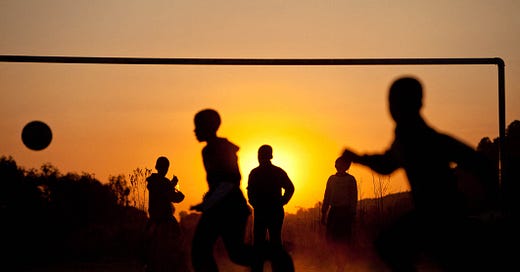Being intersex in Malawi
An intersex person who has taken bullying, erasure and ignorance for 22 years hopes to vote for better leaders now that he is old enough to.
Josephine Chinele in Blantyre
In April 2002, Bauleni* stood outside the home of a traditional birth attendant in his central Malawian village, waiting to welcome his fourth child into the world. He grew increasingly anxious, though, watching a flurry of activity as village elders paced to and from the delivery room.
“My instinct told me something was wrong, although I didn’t know what it was,” he recalls. “I had heard the baby’s cry, a sign of life, but their actions prompted fears of losing my baby.” He told the elders to go home.
Nachisale*, the now-retired birth attendant, explains what caused the commotion: the baby was intersex. “I was shocked – for the first time ever, I helped deliver a child with both male and female genitalia. I didn’t know what to do since I hadn’t heard of such a thing in my life.”
Intersex people are born with sexual anatomy, reproductive organs, or chromosome patterns that don’t fit typical male or female definitions. Globally, they face discrimination, stigma, and rights violations. Michael Kaiyatsa, director of the Centre for Human Rights and Rehabilitation, says the Malawian government operates as if intersex people don’t exist, serving to intensify discrimination against the marginalised and maligned community.
“I’ve heard stories of old grannies killing children who are considered taboo in society,” says Bauleni, who believes that by instructing the elders to leave, he saved his child from being killed at birth.
Relentless bullying as influential leaders resist change
The baby born that day, Mwayi*, was raised as a girl until the age of three. Health workers then said his male reproductive organs were likely to be dominant and advised his parents to raise him as a boy. Then, puberty hit. “Adolescence took away my peace of mind; so much changed in my body,” Mwayi says. “I’m not like other men since I have breasts and I menstruate.”
Mwayi’s face lights up when he speaks about soccer, but his enthusiasm dims quickly when he explains why he stopped playing. “Training requires us to remove our shirts. I can’t do this; people would make fun of my breasts.”
More recently, he quit singing in his church choir after fellow choir members tried to strip him to see his breasts – just one of the many incidents of harassment the 22-year-old has been forced to endure.
Years of harassment and abuse have taken a severe toll on his mental health – he has attempted suicide twice.
“He needs professional counselling support,” says Kaiyatsa. “The bullying that Mwayi is experiencing is a sign that people don’t understand these issues. Government and civil society organisations should intensify awareness for the public to accept them.”
Mwayi’s story is not isolated but instead speaks to widespread prejudice faced by LGBTQIA+ people in Malawi, fuelled by punitive laws and the influence of religious leaders.
“I’ve heard stories of old grannies killing children who are considered taboo in society,” says Bauleni, who believes by instructing the elders to leave, he saved his child from being killed at birth.
“Many people look at LGBTQIA+ people as a concept and not as fellow human beings,” says Chikondi Chijozi from the Southern African Litigation Centre. “LGBTQIA+ issues can’t be separated from human rights issues. He [Mwayi] is a human being just like anybody else.”
Chijozi suggests that law reform is the starting point for changing discriminatory narratives. If the law creates room for inclusivity, societal perception gradually shifts to one of acceptance.
“The religious institutions are also very influential in this whole thing. People are disowning their children and living in denial because they want to be accepted by their churches,” says Chijozi.
In 2023 Malawian religious leaders protested against the review of the country’s penal code to decriminalise same-sex relationships. A year later, the Constitutional Court dismissed the petition they were angry about. “The law, as it stands, is a catalyst for discrimination and violence against LGBTQIA+ persons,” Chijozi says.
In April, the United Nations Human Rights Council adopted the first-ever resolution denouncing discrimination against intersex people. It was adopted by a vote of 24 in favour and none against. Malawi abstained. Ministry of Justice spokesperson Frank Namangale says Malawi abstained because this is an area that needs further understanding, research, reflection and consultations. But, he adds, the country “progressively examines and re-examines her positions where it’s deemed necessary.” Kaiyatsa believes the government was afraid of a backlash from conservative groups.
Mwayi, who knows the personal price of such political reticence, intends to cast his first vote next year and hopes to elect more progressive leaders into power. “I will vote for leaders who will prioritise protecting the rights of people like me. Ones that will create a conducive environment for awareness for Malawians to know that people like me also exist.”




